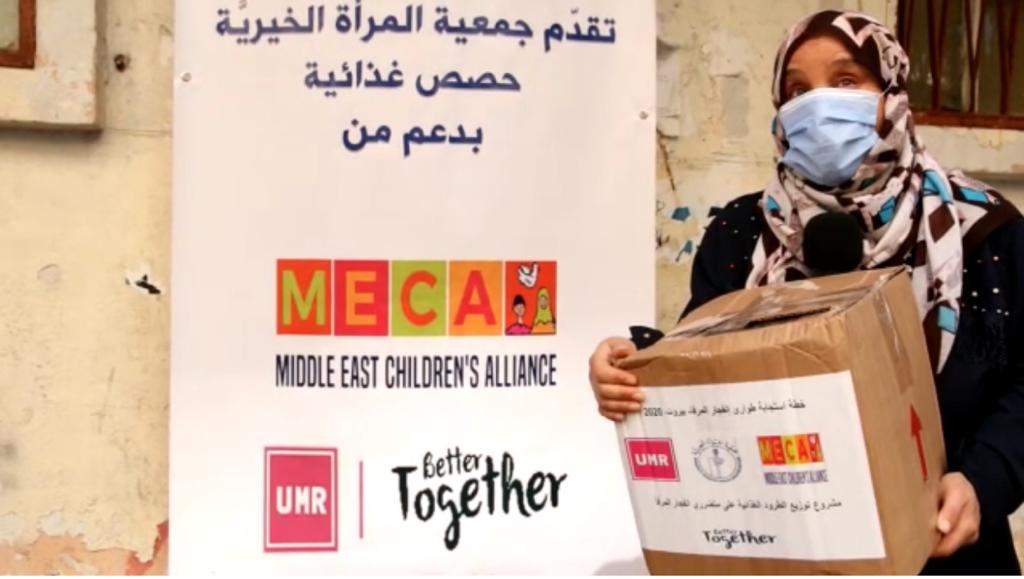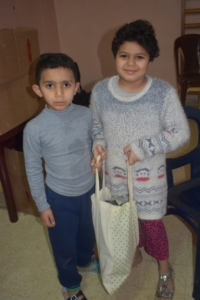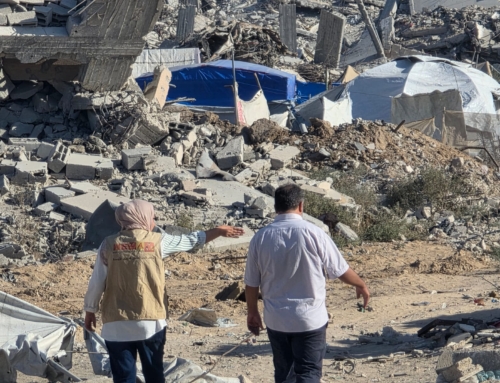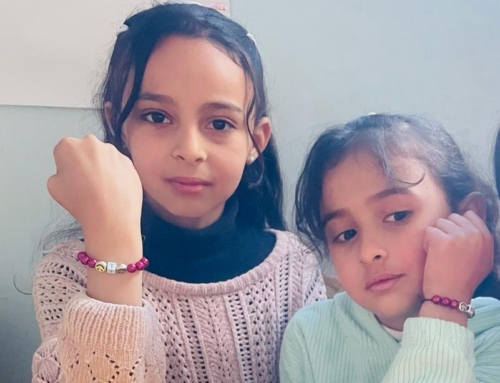
September 2020, Shatila refugee camp, Lebanon. United Mission Relief donated funds for MECA’s food parcels, distributed to Palestinian and Syrian refugees by our long-time partner Palestinian Women’s Humanitarian Organization (PWHO).
Background: There are nearly at least a million Syrian refugees, in Lebanon and most live below the poverty line, with an estimated ninety percent experiencing food insecurity. Many people who fled war in Syria—Syrians and Palestinians alike—have joined the Palestinian refugees who already lived in Lebanon for decades. They now live together in the overcrowded, dilapidated refugee camps built to “temporarily” house the families who fled the ethnic cleansing of Palestine in 1948. Both displaced peoples face extremely precarious financial and legal situations. The huge chemical explosion in Beirut last August, in the midst of a harrowing economic crash and the COVID pandemic, has created an almost unbelievable humanitarian crisis for Lebanon’s refugee population.

April 2020, Shatila refugee camp, Lebanon. A family received MECA’s first distribution of hygiene kits to prevent the spread of coronavirus
One of the many joys of what we do at MECA is creating long-lasting relationships with people working on the ground. One of those people is Suha Yassir, the Projects Manager at one of our main partners in Lebanon, the Palestinian Women Humanitarian Organization. PWHO has been working in the Palestinian refugee camps in Lebanon for decades. They have been distributing food parcels, hygiene kits, and winter clothes as part of MECA’s COVID and winter relief efforts.
Suha always lifts my spirits. She’s one of those people who’s always able to see light at the end of a very dark tunnel—which is why our conversation this time was somewhat upsetting. “I don’t know what to tell you,” she said. “I am really afraid we might reach a point where we’re not able to attend to people’s needs in these camps. The first question I get asked every time we deliver a food parcel or hygiene kit is, ‘When is the next distribution going to be?’ This breaks my heart.” Indeed, more and more people in the camps are unable to fill their basic needs as inflation and unemployment are rising, and people are still homeless after the Beirut explosion in August.
COVID is still hitting Lebanon hard. On New Year’s Eve alone, 4,000 positive cases of COVID were registered, and not everyone can afford to get tested. Even when they can, they often don’t have the space or the support to quarantine. We continue to hope that a just political, social, and economic solution will be reached, but until then it falls on our shoulders to do everything we can to help alleviate the suffering of our fellow human beings.





